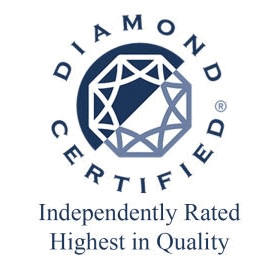Epoxy Flooring Solutions for High-Traffic Retail Spaces
- htouchstonecare

- Aug 1, 2025
- 4 min read

Introduction: The Retail Flooring Dilemma
High-traffic retail environments face relentless wear and tear—foot traffic, rolling carts, display changes, cleaning machines, and customer spills all take a toll on flooring. If you're a business owner in the Bay Area, especially in bustling places like San Jose or Morgan Hill, your floor needs to do more than look good—it needs to last. That’s where epoxy flooring solutions for high-traffic retail spaces come into play.
Why Epoxy Flooring Works for Retail Environments
Durability That Withstands the Rush
Retail spaces need flooring that doesn't crack under pressure. Epoxy coatings are known for their abrasion resistance, chemical stability, and impact durability, making them a smart investment for businesses with continuous foot traffic. According to Grandview Research, epoxy dominates over 50% of the U.S. commercial floor coating market due to its strength and lifespan.
Lower Maintenance, Lower Costs
Epoxy floors are non-porous and seamless, which means dirt and grime don’t settle into grout lines or seams. Daily upkeep is as simple as a quick dust mop or neutral cleaner. Studies by EpoxyPlus show that epoxy floors reduce cleaning costs by up to 30% annually versus tile or hardwood.
Design Flexibility & Custom Branding
Color Matching and Custom Logos
Epoxy flooring isn’t limited to gray warehouse-style finishes anymore. Today’s retail spaces use epoxy to embed brand colors, logos, directional arrows, or even product zone markers right into the floor. This enhances both branding and the shopping experience.
Trending Looks: Metallic, Flake & Matte Finishes
Modern retail design leans toward metallic epoxy swirls, decorative flake blends, and low-sheen matte finishes that reduce glare. These looks bring a premium, high-design vibe to boutiques, showrooms, and restaurants. EpoxyElite notes a spike in these trends through 2025, especially for Bay Area luxury retail fit-outs.
Safety & Compliance Considerations
Slip Resistance & Anti-Fatigue Comfort
Retailers can request slip-resistant additives like silica sand or aluminum oxide, making epoxy safe even in areas prone to spills. These surfaces exceed OSHA standards and are ideal for grocery stores, pharmacies, and food courts. Anti-fatigue coatings can also be added under epoxy to support standing workers.
Low-VOC & Eco-Friendly Formulas
More retailers want sustainable materials. Many modern epoxy systems are low-VOC, low-odor, and Green Building-compliant, especially in California where indoor air quality is tightly regulated. The 2025 Epoxy Flooring Market Outlook emphasizes rising demand for environmentally responsible coatings.
Epoxy Flooring Solutions for High-Traffic Retail Spaces; Installation Process for Active Retail Stores
Surface Prep & Scheduling for Minimum Downtime
Retailers can’t afford long shutdowns. That’s why professional installers like Heavenly Touch Stone Care focus on precise scheduling and overnight work. The process includes deep surface prep, crack repair, and moisture mitigation before coating begins.
Fast-Cure Options for Rapid Turnaround
Specialized systems like polyaspartic blends allow stores to reopen in 24 to 48 hours after application. This makes epoxy ideal for franchises or high-volume stores that can’t pause operations for a week.
Maintenance & Longevity: What Store Owners Should Expect
Daily Cleaning & Long-Term Upkeep
Maintenance is minimal with epoxy—dry dust mopping daily and damp mopping weekly is usually sufficient. Periodic resealing every few years in high-wear zones ensures longevity. For detailed advice, Coatings Hub NorCal offers practical maintenance protocols.
How Long Will It Last?
Properly installed epoxy flooring can last 10 to 20 years in retail settings. That’s a better ROI than vinyl, tile, or hardwood. For business owners in San Jose looking for a reliable flooring upgrade, this is a long-term win.
Epoxy vs Polished Concrete vs Polyaspartic: Retail Showdown
Performance Comparison Table
Epoxy: Great for branding, mid-cost, moderate cure time, high design flexibility
Polished Concrete: Low-maintenance, cost-effective, but limited design
Polyaspartic: Fast cure, UV-resistant, higher cost
Each has strengths—epoxy shines in appearance and customization, while polished concrete is popular for big-box spaces. Heavenly Touch’s concrete polishing services help retailers choose based on need.
Use Cases for Each in Retail
Epoxy: Showrooms, boutiques, branded stores
Polished Concrete: Department stores, grocery chains
Polyaspartic: Auto parts stores, urgent renovations, outdoor entry zones
Case Study: San Jose Boutique Retail Transformation
One local retail boutique in downtown San Jose turned to Heavenly Touch Stone Care for a total floor makeover. The owner chose a metallic charcoal swirl with embedded logo. Foot traffic doubled in six months, and cleaning time was slashed by 40%. The store reopened just 48 hours after application.
FAQs: Epoxy Flooring for Retail Spaces
What are the benefits of epoxy floors for retail stores?
Epoxy floors are durable, easy to clean, customizable, and safe—perfect for high-traffic retail use.
How durable is epoxy flooring in high-traffic retail environments?
With proper care, epoxy floors last 10–20 years even in stores with constant foot traffic.
How do you maintain and clean epoxy floors in stores?
Daily dust mopping and weekly damp cleaning with pH-neutral products keeps epoxy in top shape.
How long does installation take and how soon can stores reopen?
Most installations take 2–5 days, but polyaspartic options allow reopening in 1–2 days.
Can epoxy floors be customized to match store branding?
Absolutely. Epoxy can be color-matched, embedded with logos, and styled with decorative finishes.
Conclusion: Heavenly Touch Stone Care is Ready to Help You Reinvent Your Retail Space

For store owners looking to upgrade their flooring, epoxy delivers durability, design freedom, and operational savings. Whether you're in San Jose, Gilroy, or anywhere in the South Bay, Heavenly Touch Stone Care brings decades of expertise in commercial epoxy floor coatings.
Need help deciding? Explore our FAQs, or contact us for a free consultation. Let’s build a floor your customers won’t forget.




Comments